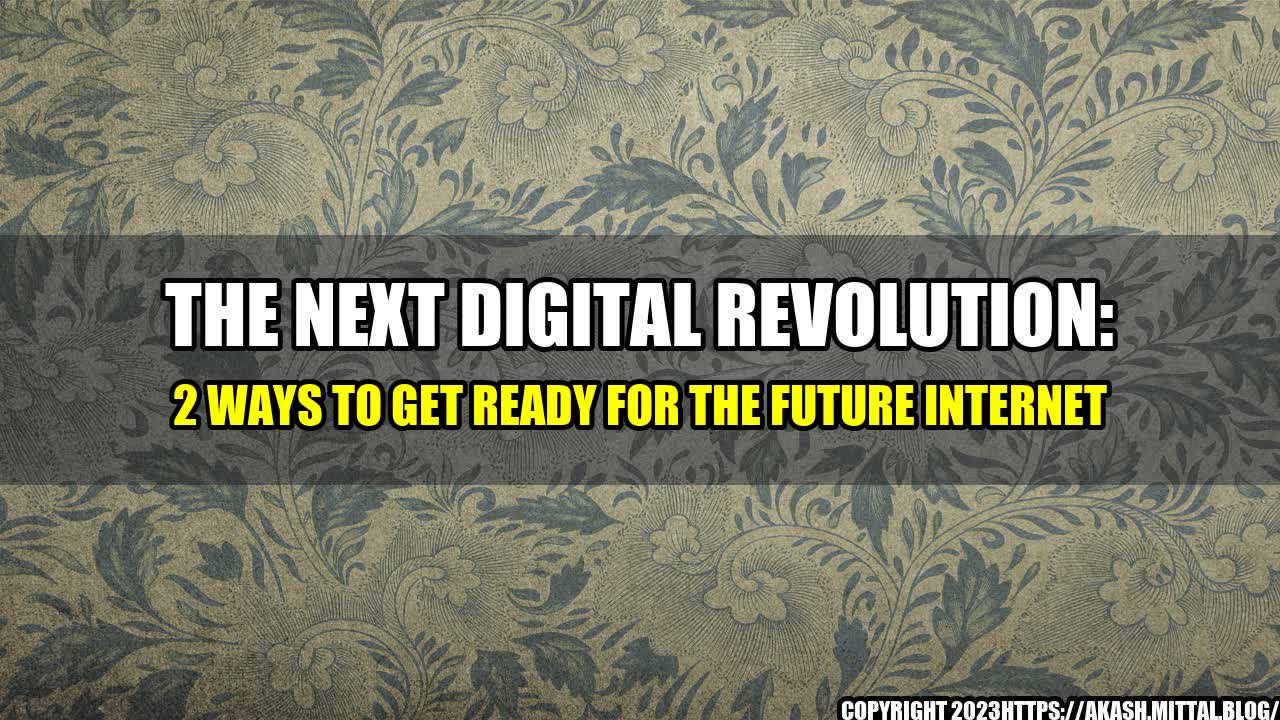Think back to the early days of the internet. Do you remember how slow and unreliable it was? It could take minutes to load a webpage, and forget about streaming videos or music. But then, something amazing happened. The next digital revolution hit, and suddenly, the internet became faster, more reliable, and more accessible than ever before.
Now, we're on the brink of another digital revolution. As we move into the future, the internet is set to change once again. It will become even faster, more interconnected, and more powerful than ever before. But are you ready for it?
Here are a few quantifiable examples of how the internet will change in the near future:
- The Internet of Things (IoT) will become more prevalent, with an estimated 50 billion devices connected by 2020
- The use of Virtual Reality (VR) and Augmented Reality (AR) will become more widespread, with a projected market size of over $100 billion by 2025
- The adoption of 5G cellular networks will enable faster internet speeds and better connectivity, allowing for more complex applications and interactions
An
To prepare for the next digital revolution, it's important to start thinking about what the future internet will look like, and how you can position yourself to take advantage of it. Here are two ways to get ready:
1. Learn About Emerging Technologies
If you want to succeed in the future internet landscape, it's important to stay up-to-date on emerging technologies. This means reading blogs, attending conferences and meetups, and networking with others in the industry.
For example, if you're interested in the Internet of Things (IoT), you might attend a conference like IoT World or follow blogs like IoT Tech Trends. If you're interested in Virtual Reality (VR), you might join a community like the Virtual Reality Society or read blogs like VRScout.
2. Develop New Skills
As the internet evolves, so too will the skills required to succeed. To prepare for the future, it's important to develop new skills that will be in demand. Here are a few examples:
- Machine Learning – The ability to develop algorithms that can learn and adapt
- Data Science – The ability to analyze, interpret, and visualize complex data sets
- Cybersecurity – The ability to protect data and networks from cyber attacks
- The next digital revolution is on the horizon, and it will change the internet as we know it
- To prepare for the future, it's important to stay up-to-date on emerging technologies and to develop new skills
- By taking these steps, you can position yourself to take advantage of the future internet landscape
and Case Studies
Susan was a web developer who had been working in the industry for ten years. She had seen the internet evolve dramatically in that time, but she wasn't sure she was ready for the next digital revolution.
She started attending industry conferences and meetups, and found that she was excited about the emerging technologies she was learning about. She also started taking online courses in machine learning and data science.
After a few months of this, Susan landed a job working on a cutting-edge IoT project. Her new skills and knowledge set her apart from other candidates, and she realized that she was more than ready for the next digital revolution.

Curated by Team Akash.Mittal.Blog
Share on Twitter Share on LinkedIn